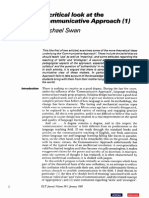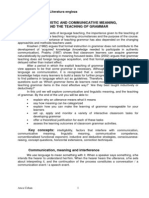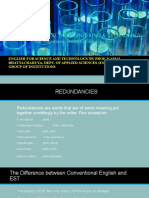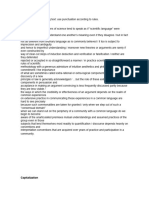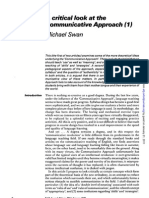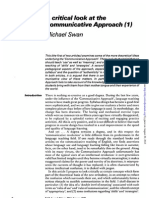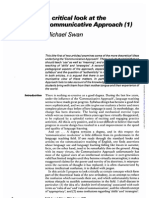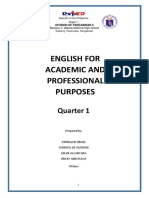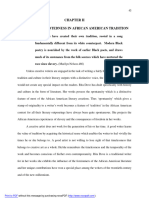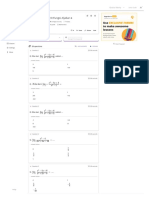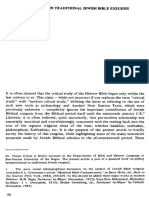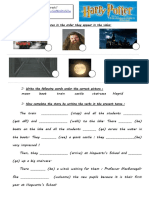Style & Editing
Advanced Punctuation Exercise
CONVEYING MEANING WITH PUNCTUATION: This passage lacks all punctuation (slash marks indicate
grammatical sentences). Add missing punctuation, paying special attention not only to correctness
but to ensuring that the meaning is as clear as possible. There is an answer/options key on the other
side…but don’t peek until you’ve finished!
Scientists and philosophers of science tend to speak as if “scientific language” were intrinsically
precise as if those who use it must understand one another’s meaning even if they disagree / but in fact
scientific language is not as different from ordinary language as is commonly believed / it too is subject to
imprecision and ambiguity and hence to imperfect understanding / moreover new theories or arguments
are rarely if ever constructed by way of clear-cut steps of induction deduction and verification or
falsification / neither are they defended rejected or accepted in so straightforward a manner / in practice
scientists combine the rules of scientific methodology with a generous admixture of intuition aesthetics and
philosophical commitment / the importance of what are sometimes called extra-rational or extra-logical
components of thought in the discovery of a new principle or law is generally acknowledged / …but the
role of these extra-logical components in persuasion and acceptance in making an argument convincing is
less frequently discussed partly because they are less visible / the ways in which the credibility or
effectiveness of an argument depends on the realm of common experiences on extensive practice in
communicating those experiences in a common language are hard to see precisely because such
commonalities are taken for granted / only when we step out of such a “consensual domain” when we can
stand out on the periphery of a community with a common language do we begin to become aware of the
unarticulated premises mutual understandings and assumed practices of the group even in those subjects
that lend themselves most readily to quantification / discourse depends heavily on conventions and
interpretation conventions that are acquired over years of practice and participation in a community.
Need some hints?
For a review of punctuation uses, try these handouts from the Purdue University Online Writing Lab—
“Using Commas”: http://owl.english.purdue.edu/handouts/grammar/g_comma.html
“Brief Overview of Punctuation”: http://owl.english.purdue.edu/handouts/grammar/g_overvw.html
See over )
�ANSWER / OPTIONS KEY:
Scientists and philosophers of science tend to speak as if “scientific language” were intrinsically
precise [:] [–] [,] as if those who use it must understand one another’s meaning [,] even if they disagree [.]
But1 [,] in fact [,] scientific language is not as different from ordinary language as is commonly believed [.]
It [,] too [,]2 is subject to imprecision and ambiguity [, optional] and hence to imperfect understanding [.]3
[M]oreover [,]new theories or arguments are rarely [,] if ever [,] constructed by way of clear-cut steps of
deduction and verification or falsification [;]4 neither are they defended [,] rejected [,] or accepted in so
straightforward a manner [.] In practice [,] scientists combine the rules of scientific methodology with a
generous admixture of intuition [,] aesthetics [,] and philosophical commitment [;]5 the importance of what
are sometimes called extra-rational or extra-logical components of thought in the discovery of a new
principle or law is generally acknowledged [.] . . . but the role of these extra logical components in
persuasion and acceptance in making an argument convincing is less frequently discussed [,] partly
because they are less visible [.] The ways in which the credibility or effectiveness of an argument depends
on the realm of common experiences [--] on extensive practice in communicating those experiences in a
common language [--] are hard to see [,] precisely because such commonalities are taken for granted [.]
Only when we step out of such a “consensual domain” [,] [--] when we can stand out on the periphery of a
community with a common language [,] [--] do we begin to become aware of the unarticulated premises [,]
mutual understandings [,] and assumed practices of a group [--] [:]6 even in those subjects that lend
themselves most readily to quantification [.] Discourse depends heavily on conventions and interpretation
[;] [--] conventions that are acquired over years of practice and participation in a community.
1
A comma before the “but” here is technically correct but, given the number of commas preceding this clause already, creates an overly long, awkward
sentence.
2
It, too, -or- It too—either two commas or none.
3
Though a semicolon is technically correct, it makes more sense to use one to separate this clause from the next one, not from the previous one.
4
A full stop here is technically correct but stylistically choppy.
5
Though a full stop + capital “The” is technically correct, this punctuation-choice creates a split between these closely related ideas.
6
You could use 2 long-dashes earlier in this sentence, but the preferred mark is a colon.
Handout revised: August 10, 2009 ™












